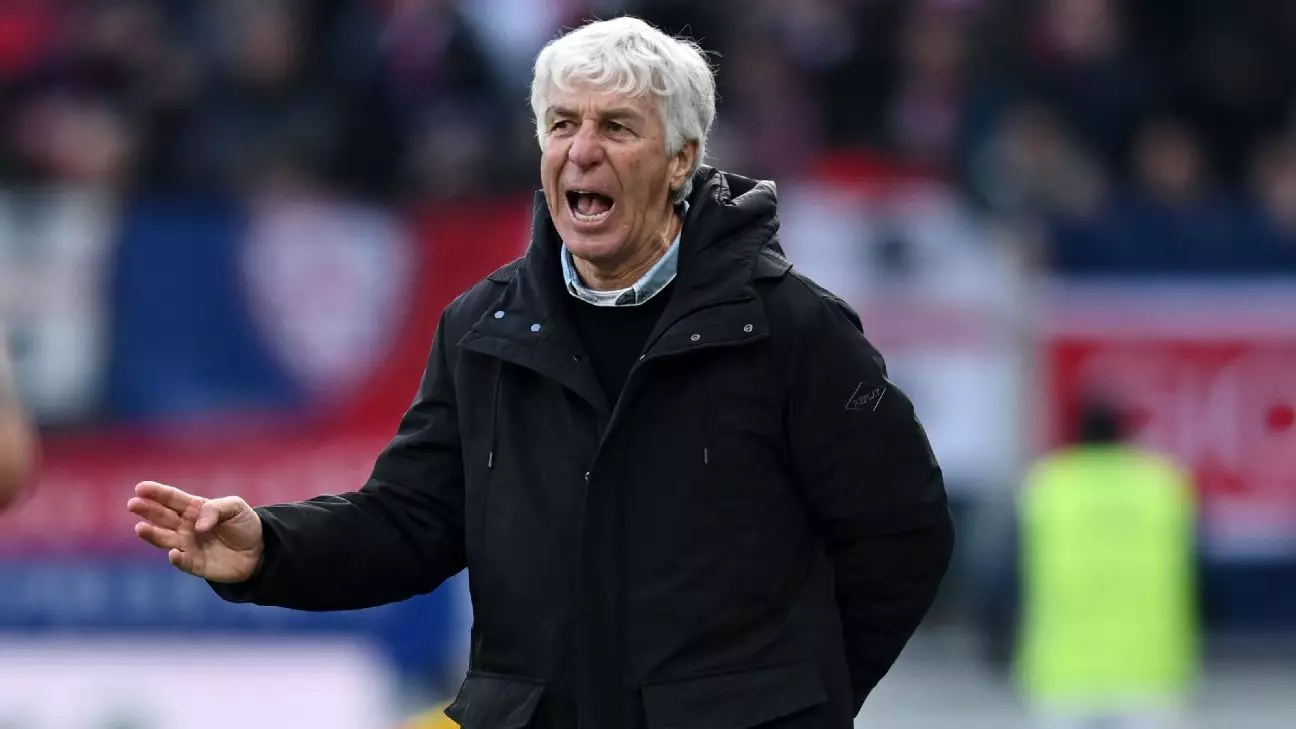In the world of professional sports, effective communication is crucial both on and off the field. A recent incident involving Atalanta’s head coach Gian Piero Gasperini and forward Ademola Lookman has highlighted the often delicate balance of managing player relationships and public statements. Following Atalanta’s surprising 3-1 defeat to Club Brugge in the Champions League, Gasperini made a controversial remark about Lookman, saying he was “one of the worst penalty takers” he had ever seen. This statement did not simply reflect on Lookman as a player but rather ignited a wave of criticism and concern regarding Gasperini’s approach to team dynamics.
Lookman, who had been a critical player for Atalanta in previous seasons, including their Europa League triumph, found himself at the center of Gasperini’s criticism following a missed penalty during the critical match. Although he managed to score a goal amidst the team’s 3-0 defeat, his earlier failure at the penalty spot overshadowed his contributions. Gasperini defended his comments, claiming he never intended to offend the player. This statement prompts one to consider the ramifications of public critique by coaches, especially when directed at individual players, which can significantly affect their morale and performance.
Gasparini’s leadership style has faced scrutiny in this case. While he emphasized the importance of team dynamics and accountability, his comments came off as disparaging rather than constructive. By undermining Lookman’s confidence publicly rather than addressing the issue privately, Gasperini might have compromised the trust between himself and his player. This incident raises critical questions about the effectiveness of direct criticism in high-pressure environments. Post-game remarks should ideally aim to motivate and empower athletes, particularly after disappointing performances.
Lookman responded to Gasperini’s statements, labeling them as “deeply disrespectful” and hurtful. Such reactions illustrate the fragility of player-coach relationships and the potential for miscommunication to lead to larger conflicts. These reactions are significant in the context of building a supportive team environment, where players feel valued and understood rather than singled out for failure. The situation exemplifies the necessity for thoughtful communication and the capacity for empathy in coaching, as well as the potential pitfalls of public discourse in professional sports.
With Atalanta currently third in Serie A and preparing to face Empoli, Gasperini must prioritize healing and cohesion within the squad. His acknowledgment of the upcoming match against a relegation-threatened team places additional pressure on the coach to navigate the nuanced landscape of team dynamics effectively. Successful coaching hinges not only on strategic acumen but also on fostering a resilient team spirit capable of bouncing back from adversity. As they move forward, the emphasis must be placed on learning from this incident to enhance both player performance and overall team unity.

Leave a Reply